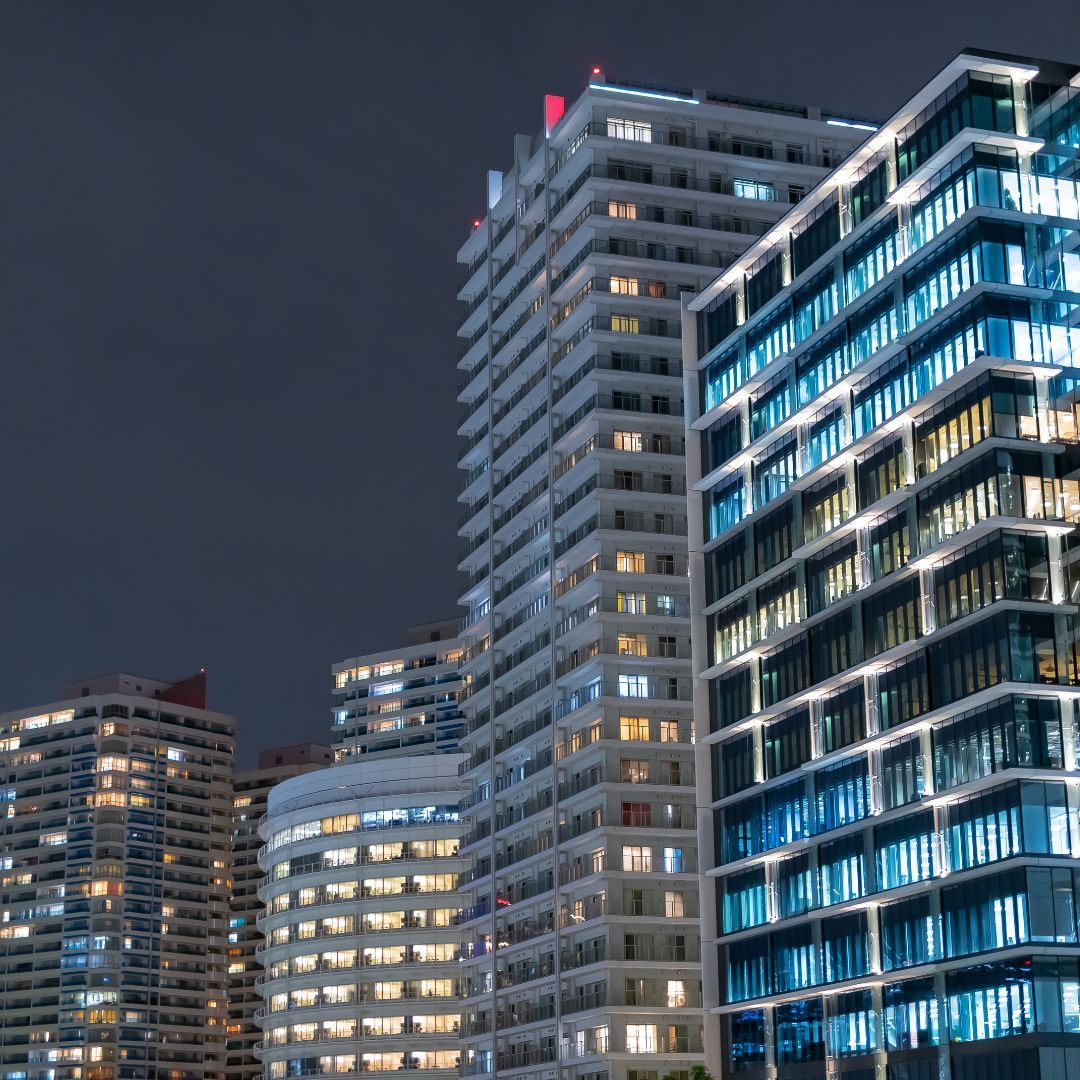The Risks of Underinsuring High-Traffic Bars and Nightclubs
See How We're Different
or call us: 303-834-1001
High-traffic bars and nightclubs are bustling environments, often filled with a vibrant mix of patrons seeking food, drink, and entertainment. However, these venues also face unique risks that require appropriate insurance coverage. Underinsuring can lead to devastating financial consequences not just for the business owners but also for customers and employees alike. This article delves into the concept of underinsurance, its repercussions, and the necessity of having adequate coverage.
Understanding the Concept of Underinsurance
Underinsurance occurs when a business does not have sufficient coverage to fully protect its assets and operations in the event of a loss. In the hospitality industry, this situation can arise due to various reasons, including inadequate policy evaluations, miscalculations of building values, and lack of awareness of potential liabilities.
Defining Underinsurance in the Hospitality Industry
In the hospitality sector, underinsurance typically means that a bar or nightclub's insurance policy does not cover the full value of their physical assets, like furniture and fixtures, or the potential liabilities from accidents. For instance, if a nightclub is only insured for $500,000 while its liabilities could exceed $1 million, this disparity can lead to catastrophic financial situations in the event of claims. Furthermore, the unique nature of the hospitality industry, with its high foot traffic and dynamic environment, makes it essential for owners to regularly reassess their coverage needs. Factors such as seasonal fluctuations, changes in local laws, and evolving business models can all impact the adequacy of insurance policies.
The Prevalence of Underinsurance Among Bars and Nightclubs
Many bars and nightclubs fall prey to underinsurance due to busy operations and the frequent turnover of ownership. Owners may prioritize immediate concerns over comprehensive coverage. According to a study by the National Association of Insurance Commissioners, nearly 40% of bars and clubs surveyed were found to be underinsured, exposing them to significant risks. This issue is compounded by the fact that many business owners may not fully understand the complexities of their insurance policies or the specific risks associated with their operations. For example, a nightclub might underestimate the potential costs associated with a slip-and-fall incident, leading to insufficient liability coverage. Additionally, the rapid pace of change in the hospitality industry, including the rise of new entertainment trends and technologies, can create gaps in coverage that owners might overlook, further increasing their vulnerability to financial loss.
The Potential Risks of Underinsurance
Underinsurance presents various risks that can affect the day-to-day operations of bars and nightclubs. These risks span financial, legal, and reputational aspects that can ultimately endanger the sustainability of the business.
Financial Implications of Underinsurance
One of the most significant financial implications of underinsurance is the inability to recover fully from a loss. For example, if an unexpected disaster, such as a fire or flood, occurs, an underinsured venue may only receive a fraction of the repair costs through their policy. This shortfall necessitates the owners to cover the remaining expenses out-of-pocket, creating potential cash flow challenges.
Furthermore, the loss of business during repairs can compound financial hardships. Without adequate coverage, owners may struggle to manage ongoing operational costs while also funding repairs, risking bankruptcy. In addition to immediate repair costs, there are often hidden expenses that arise, such as increased insurance premiums following a claim or the costs associated with hiring temporary staff or securing alternative venues for events. These financial strains can lead to a downward spiral, where the inability to recover financially impacts the overall viability of the establishment.
Legal Consequences of Inadequate Insurance
Inadequate insurance coverage can also result in severe legal implications. Bars and nightclubs face multiple liabilities, from patron injuries to property damage. If coverage limits are insufficient, the business may find itself exposed to lawsuits that exceed policy limits, leading to potential bankruptcy or the loss of business assets.
Some jurisdictions may impose penalties or lawsuits against business owners who do not maintain proper coverage, further complicating an already precarious situation. In addition, the legal landscape is constantly evolving, with new regulations and compliance requirements emerging that can catch underinsured businesses off guard. Failure to meet these legal obligations can result in hefty fines or even the revocation of a business license, making it crucial for owners to stay informed and adequately insured to navigate the complexities of the law.
Reputational Damage from Underinsurance
The reputational damage resulting from underinsurance cannot be underestimated. Patrons expect safe environments when they enter bars and nightclubs. Any incident that leads to serious injuries or damages not adequately covered by insurance can result in significant negative publicity.
With the rise of social media, news about bar incidents spreads swiftly, impacting customer trust. A bar that is known to be underinsured may struggle to attract patrons, ultimately affecting profitability. Moreover, the long-term effects of reputational damage can extend beyond immediate financial loss. Once a venue is labeled as unsafe or unreliable, it may take years of consistent, positive experiences to rebuild its reputation. Engaging with the community and demonstrating a commitment to safety through proper insurance coverage can help mitigate these risks, but the initial damage may linger, influencing customer perceptions and loyalty.
The Importance of Adequate Coverage for High-Traffic Venues
Having adequate insurance coverage is crucial for the sustainability and success of high-traffic bars and nightclubs. Proper insurance aligns the risk management strategy of a venue, providing peace of mind for owners and clients alike. In an industry where the unexpected can happen at any moment, from accidents to unforeseen legal issues, having the right insurance can mean the difference between recovery and financial ruin.
Assessing the Right Level of Coverage
To determine the right level of coverage, bar owners must conduct a thorough evaluation of their assets and operations. This includes not just the physical property but also liability limits that accommodate potential risks associated with hosting large crowds. Factors such as the venue's location, the type of events hosted, and the demographic of patrons all play a crucial role in this assessment. For instance, a nightclub that frequently hosts live music events may face different risks compared to a bar that primarily serves cocktails in a more relaxed setting.
Employing a qualified insurance agent can facilitate this process and help in selecting a policy that appropriately covers various aspects of the business, ensuring that the venue is truly protected against possible losses. An experienced agent can also provide insights into industry-specific coverage options, such as liquor liability insurance, which is essential for establishments serving alcohol. This specialized coverage protects against claims resulting from incidents related to the consumption of alcohol, adding an extra layer of security for bar owners.
The Role of Insurance in Risk Management
Insurance should form a key part of the overall risk management strategy for bars and nightclubs. Understanding the specific risks that each venue faces allows owners to secure policies that cover liability, property, and possible business interruptions. For example, a sudden fire or natural disaster can lead to significant downtime, and having business interruption insurance can help cover lost income during repairs, allowing the venue to bounce back more quickly.
Additionally, regular reviews of coverage can adapt to business changes, ensuring that the venue remains sufficiently insured even as growth and renovations occur. As bars and nightclubs evolve, whether through expanding their space, introducing new services, or changing their operational model, it is vital to reassess insurance needs. This proactive approach not only safeguards the business but also builds trust with patrons, who feel more secure knowing that the venue is prepared for any eventuality. Furthermore, staying informed about changes in local laws and regulations can help bar owners adjust their insurance policies accordingly, ensuring compliance and minimizing potential legal risks.
Overcoming the Challenges of Underinsurance
Addressing underinsurance involves strategic planning and awareness. By understanding the main causes of underinsurance, bar and nightclub owners can adopt solutions to prevent inadequate coverage from compromising their operations. This proactive approach not only protects their financial interests but also enhances the overall safety and experience for patrons, which is crucial in the competitive nightlife industry.
Strategies to Avoid Underinsurance
Implementing regular assessments of insurance needs is vital. Owners should consider conducting annual reviews to adjust their policies based on new assets or changes in the business landscape. This could include renovations, new equipment purchases, or changes in local regulations that may affect liability. By staying informed and adaptable, owners can ensure their coverage evolves alongside their business, mitigating the risk of being caught off guard by unforeseen events.
Education is also crucial. Owners and managers should be informed about the different types of risks associated with high-traffic environments and understand what their insurance covers and excludes. Continuous training can empower staff to be vigilant and proactive in maintaining a safe environment. Regular workshops on emergency procedures, crowd management, and responsible service can not only reduce incidents but also demonstrate to patrons that the venue prioritizes their safety, potentially enhancing the establishment's reputation.
The Role of Insurance Brokers in Ensuring Adequate Coverage
Insurance brokers offer valuable expertise in navigating the complex insurance landscape. They can guide bar and nightclub owners in selecting the right policies and negotiating coverage limits that shield them against potential financial devastation. Brokers often have access to a wide range of insurers and can tailor solutions that fit the unique needs of each venue, ensuring that no critical aspect of the business is left unprotected.
Brokers can also help in understanding niche insurance products tailored specifically for the nightlife industry, ensuring that venues are comprehensively covered against unique risks. For example, they can advise on coverage for liquor liability, event cancellation, and even cyber liability, which is increasingly important as more establishments adopt digital payment systems. By leveraging the broker's knowledge, owners can make informed decisions that not only safeguard their business but also enhance their operational resilience in an ever-changing landscape.
The Future of Insurance in the Nightlife Industry
As the nightlife industry evolves, so too does the insurance landscape. New risks are emerging, necessitating an adaptive approach to coverage.
Emerging Trends in Bar and Nightclub Insurance
The rise of craft cocktails, themed events, and experiential dining are presenting new challenges for insurance providers. Specialty coverage tailored for unique situations, including covering festivals or large events hosted by bars, is on the horizon. For instance, as pop-up bars and immersive experiences gain popularity, insurers are tasked with creating policies that address the specific liabilities associated with these transient and often unconventional venues.
Furthermore, insurers are beginning to offer policies that encompass both traditional and digital risks, reflecting the growing importance of social media and online reputation management in the nightlife world. As patrons increasingly share their experiences online, the potential for reputational damage has never been greater. Insurance products that include coverage for social media backlash or negative reviews are becoming essential for establishments looking to safeguard their brand image in a digital-first landscape.
The Impact of Technology on Insurance Coverage
Technology has significantly transformed how bars and nightclubs operate and manage risk. Data analytics allow businesses to monitor guest behavior and identify risk patterns, helping to tailor insurance to their specific needs. By leveraging customer data, venue owners can make informed decisions about staffing, security measures, and even drink specials that minimize risk and enhance the overall guest experience.
Similarly, advancements in automation and security technology can reduce accidents and liability claims, positively impacting insurance premiums and coverage options. Features such as surveillance cameras, smart lighting, and crowd management systems not only enhance safety but also provide valuable documentation in the event of an incident. As innovation continues to shape the nightlife landscape, staying informed about technological advancements will be crucial for business owners. Additionally, the integration of mobile payment systems and contactless transactions has introduced new layers of risk, prompting insurers to develop policies that address potential fraud and cybersecurity threats.
In conclusion, maintaining adequate insurance coverage is indispensable for high-traffic bars and nightclubs. By understanding and addressing the risks associated with underinsurance, venue owners can protect their businesses, patrons, and ultimately ensure long-term success in this dynamic industry.













